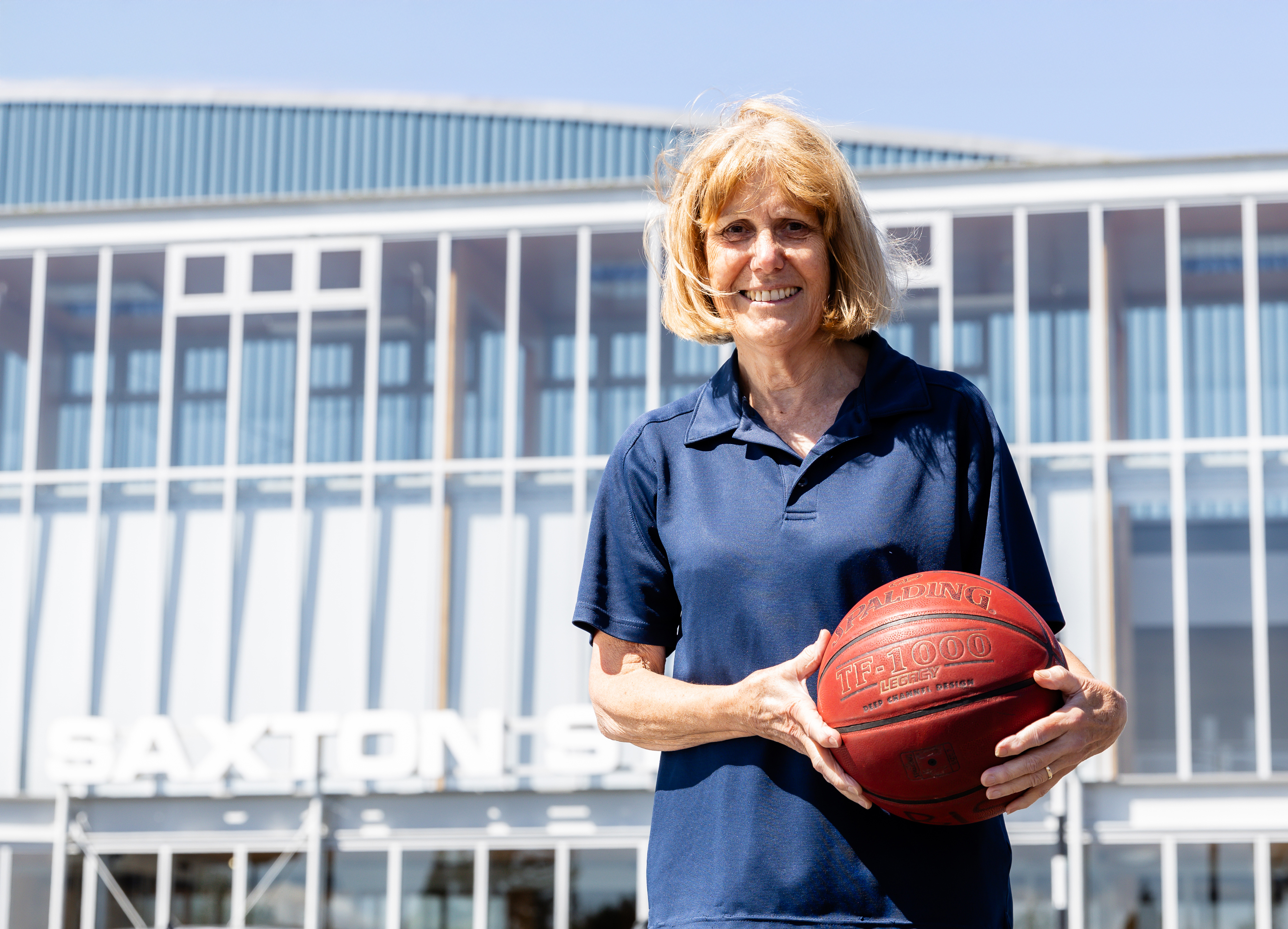Giving everyone a sporting chance


Heather Walker is breaking barriers in sports, making it accessible for all young people.
Heather Walker has dedicated her life to making sports accessible for all. With decades of experience as a coach and volunteer, she’s worked tirelessly to ensure young people, including those with disabilities, have the same opportunities to play, connect, and thrive in sports environments, as Alistair Hughes discovers.
Inclusive Sports Trust board advisor Heather Walker grew up in a time when sport was an intrinsic part of New Zealand life.
“Kids always had some sort of activity going on, like backyard cricket, so getting involved in organised sports was just a continuation of that. It was a really important part of school in those days, which encouraged active lifestyles.”
Growing up in Nelson, Heather found herself drawn to a relative newcomer in the New Zealand sports scene - basketball. Although it didn’t really begin to grow in other parts of the country until post WWII, Nelson had established a YMCA basketball league as far back as 1925. Heather discovered that she loved it, and formed a team with her school friends.
“We never played in a really competitive way, I think it was the team spirit as much as anything. Our peer group just banded together and away we went.”
In a familiar pattern, study, work and family life often occupies post school life to the detriment of sport. Heather became a registered nurse but her interests in physical activity and volunteer work remained until she returned to sport as a coach.

“I’ve now had 40 plus years of coaching at various levels and that's something I became passionate about and still enjoy.”
This included coaching and committee work with Special Olympics Nelson for around ten years.
“I went as the New Zealand team nurse to North Carolina in 1999. That was the Summer World Games, and was a great experience, but my base is really here with young people and local sports.”
Working as a health professional had made Heather even more aware of the benefits of sport. The advantages to physical health and wellbeing were obvious, but she could see that it went deeper.
“Team sport also provides a sense of belonging and the enjoyment factor. Social connection is key.”
She acknowledges that schools are under more pressure with current curriculums but also believes in the importance of instilling physical activity early to avoid health issues in later life.
As Heather coached sports in schools it became clear to her that students with special learning needs or extra challenges deserved the same opportunities as everyone else. She envisaged a basketball league which would give young players every chance to participate, despite their personal challenges.
“I felt really strongly that it wasn't to be a disability league, it would be just like any other.”
Finding a naming rights sponsor willing to give her a chance proved to be an enormous undertaking, but Heather was spurred on by a chance conversation she had with a parent of three teenagers.
“They told me that their family would sit down at the tea table, two of them would talk non-stop about their sport in college, and the third had nothing to say, wasn't included in teams or any other way, because they had a disability. And I decided that's not okay. That's not acceptable here in New Zealand, in this day and age, to have a child excluded on the basis of their disability.”
Heather often thinks back to that conversation as one of her driving forces, an absolute belief that everyone should be welcomed into sports.

Meanwhile a breakthrough was finally made with getting a sponsor to come on board and the Fulton Hogan League was born.
“It probably helped that my husband worked for them,” laughs Heather, “but they also genuinely believe in what we’re trying to do.”
This happened in 2006 and the league has gone from strength to strength in the years since. Heather’s hope is that this model of making sport available to everyone can be widely adopted and accepted everywhere.
“If someone builds the skills and confidence to move into another basketball league or sport, then that's fantastic. But if they choose to stay with the league and are enjoying it, that's also a success.”
The Inclusive Sports Trust followed a couple of years later, setting up equal opportunity multi-sports and junior sports programmes for children 5-12 years of age along the same lines. The Trust’s players use the same courts and sports fields as everyone else, where the heart of sport is with the same visibility as other competitors.
“The multi-sport groups are designed for young people who are in the later years of their secondary education, or who have left college”, she says. “Leaving school can be challenging for anyone, and it's even harder for someone who has the extra challenges of disabilities. Employment is often harder to obtain, transport can be a barrier. So feelings of isolation can be an issue for young people when they leave the safe and supportive environment of college.”
She admits that schools are better at helping these young people to transition now, but also sees sport as the ideal way to ‘get out there and break down barriers’.
“I used to feel apprehensive approaching sports organisations, hoping they’d give us a chance,” she recalls.
“But now we have them contacting the Trust to offer to help, so it's come a long way. But change does take time, obviously.”
Heather was aware that financial difficulties could be an obstacle for many families.
“As things become more expensive, sport becomes less accessible. So we work really hard as a Trust to try and keep things affordable and not another barrier to participation,” she says.
“Another incentive to set up the multi-sports group was the realisation that it wasn’t so much a case of organisations not wanting to include people with disabilities, but uncertainty about how our multi-sport group joins a different community based sport organisation each week. It might be victory boxing one week, or outdoor bowls, or zumba, a massive variety of activities.”
Heather recalls one sports organiser's initial anxiety because she had never worked alongside people with disabilities before.

“This young woman admitted she was really quite nervous, and didn’t know what to expect, and that's understandable, but afterwards she said ‘as soon as we started, I knew this was going to be fun. What an awesome group of young adults - I can't wait to see them again.’”
Heather has always believed in sports as a great vehicle to bring change, especially in an active nation like New Zealand.
“Sports can be the perfect medium for introducing young people to each other and creating a social connection, giving everyone the opportunity to participate, belong and achieve.”
Heather notes that it has been around 24 years since hospital institutions with the ‘old out of sight, out of mind’ attitude closed in Nelson.”
That's just our history and I don't dwell on it, but recognise it for what it was, and know that things had to move forward.”
Having returned from the Paralympic Games in Paris as a spectator, her enthusiasm remains as strong as ever, but she does have an unexpected goal.
“We’re bridging a gap, I guess, but I don't see that it will continue. It has always been my dream that the Inclusive Sports Trust will make itself redundant. We simply won't be needed anymore, because our young people will automatically become included as peers and members of the family in all sports organisations.”
